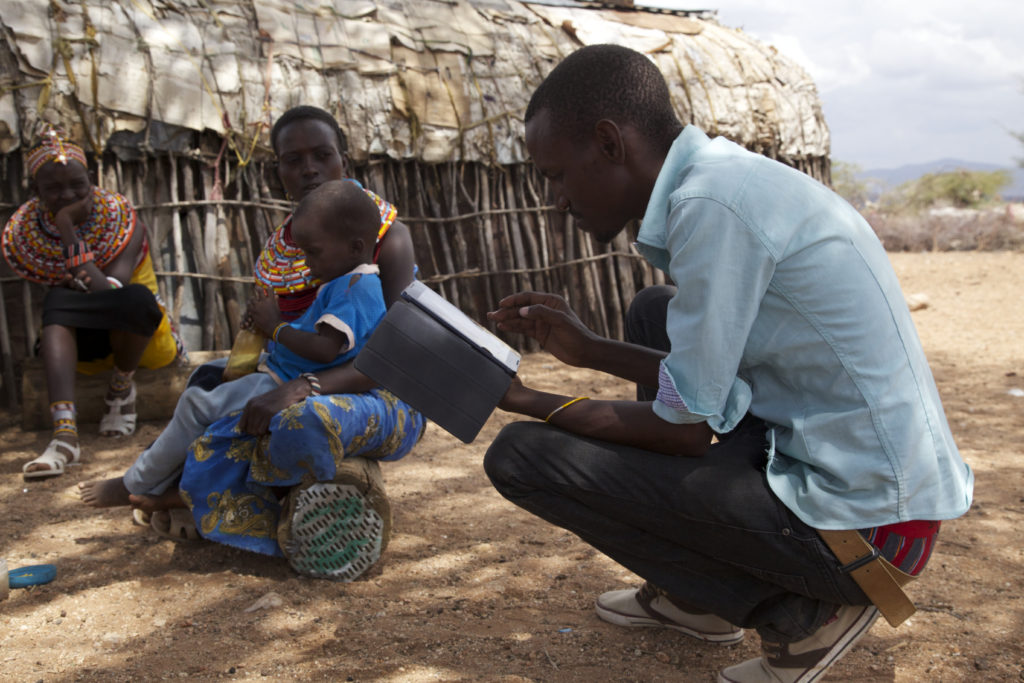
Search
With the price of smartphones dropping below $100 and more sophisticated SMS and IVR tools available to feature phone users, buying mobile field devices is a cost that makes up a growing portion of social enterprise and nonprofit field budgets. Selecting the wrong mobile devices to take into remote areas can be a costly and time-consuming decision that hurts field data team productivity and undermines the accuracy of your data collection and analysis.
Once you’ve gotten past the threshold issue of how much money you’re willing or able to spend for each device, these key questions are important to answer.
1. Will the mobile device be able to run the software you’re planning to use?
This sounds like an obvious question but you’d be surprised how little attention it gets in some people’s buying decisions. Most software providers list make and model numbers of smartphones and tablets that they recommend for their software. If not, ask for this information. These recommendations are often based on their customers’ field experience using phones or tablets with the software as well as cost, ease of use and durability. Make sure you know how much device memory and storage the software you’ll be using requires. Excess memory is your friend.
2. Does the phone have the basic functionality you’ll need?
I know, I might as well ask, “Does the car you’re about to buy have wheels?” Suffice it to say, people buying mobile field devices have come to the painful discovery that the hardware they’ve just purchased was not GPS or SIM/3G/4G enabled.
3. How remote is the location where the devices will be operated?
Will the field team be miles away from any electricity, mobile phone or internet access? If so, thoroughly research what devices possess the longest battery lives. For example, if your officers tend to survey people in the community for six hours at a time, you’ll need to equip them with devices that offer a battery life of seven hours or more. What good are electronic devices in the field if you have no way to charge them? You can backup your device batteries with solar chargers to keep things going.

BOMA Project field team member uses mobile device in rugged area of Northern Kenya. BOMA, a Kenyan NGO, runs poverty graduation programs to alleviate poverty & build resilience in Africa drylands.
4. How easy will it be to maintain, repair or replace the device?
As mobile devices will break down – no matter the durability – you must consider if there are any support resources near where your users work or are relatively easy to access remotely. This technical assistance will keep your field staff operating as smoothly and efficiently as possible. Such logistical issues make the case for purchasing the devices – if at all possible – in the country where they will be used. In addition to eliminating the complex and time consuming process of shipping the devices across borders, buying mobile field devices from a factory authorized and reputable in-country wholesaler could speed up repair and replacement. Identifying and training someone in your organization to provide the first line of technical support to your field team – for the device and software – is also invaluable.
5. How harsh is the environment in which the device will be operated?
Will your field staff be primarily outdoors, braving various weather conditions and temperatures? Will you need glare or dust protective screen covers? If so, you want to purchase devices that are not only durable, but come with sturdy enough cases to protect them from debris, moisture, heat and general wear and tear.
6. Are there potential security risks for the field team where you’ll be working?
Are tablets or oversized smartphones a security risk in certain field locations? Some of our clients have opted to operate with smaller smartphones, which attract less attention. However, they give up the ease of use that comes with a larger screen.
7. Do you have time to test the device?
If you’re planning to purchase a sizable number of devices, I highly recommend purchasing one or two of the devices under consideration to test in the field before you buy in bulk. Buying mobile field devices for testing – ideally from two different retailer/wholesalers – will give you a better sense of how the equipment works in remote areas and could offer useful information for negotiating price and features when you’re ready to buy the majority of your devices. Make sure the testing is done by members of the field team, not just your IT team, to get a user’s perspective.
POST TOPICS
Sign up to receive emails with TaroWorks news, industry trends and best practices.
TaroWorks, a Grameen Foundation company.
Site by V+V